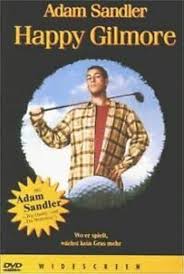
Introduction
Released in 1996, “Happy Gilmore” is a sports comedy film starring Adam Sandler that has become a cult classic. The film’s unique blend of humor and sports has resonated with audiences, making it a significant cultural touchstone in the realm of comedy. As we approach the film’s 27th anniversary, examining its impact on the comedy genre and its lasting appeal remains relevant and pivotal.
Plot Overview and Characters
In “Happy Gilmore,” Sandler plays Happy, an aspiring hockey player who discovers his talent for golf. When his grandmother’s house is threatened by foreclosure, he joins a golf tournament to save it, bringing a unique and outrageous style to the sport. Alongside him are memorable characters like Chubbs (Carl Weathers), who becomes his mentor, and Shooter McGavin (Christopher McDonald), his rival on the golf course. The character dynamics and quotable lines have contributed to the film’s enduring popularity.
Cultural Impact and Audience Reception
Upon its release, “Happy Gilmore” garnered mixed reviews from critics but found success with audiences, grossing over $40 million at the box office. Its relatable themes of determination and non-conformity, paired with Sandler’s distinctive comedic style, resonated with many, particularly younger viewers. The film paved the way for a series of successful sports comedies in the years that followed, influencing both filmmakers and future comedians.
Adam Sandler’s Comedic Style
Adam Sandler’s portrayal of Happy Gilmore showcased his signature blend of absurd humor and heartfelt moments. The juxtaposition of intense sport with playful antics, such as his iconic ability to drive the ball with his unorthodox swing, showcased Sandler’s ability to connect with audiences through humor while addressing deeper themes like family and perseverance.
Conclusion
As “Happy Gilmore” continues to be celebrated, its significance in the landscape of comedy and sports cannot be overstated. The film not only cemented Sandler’s status as a comedic icon but also influenced a generation of filmmakers and audiences alike. With its memorable lines, distinctive characters, and blend of ridiculousness with earnestness, “Happy Gilmore” remains a timeless favorite. Looking ahead, its legacy is likely to inspire future projects and continue to entertain audiences, proving that laughter remains one of the best remedies amid life’s challenges.



